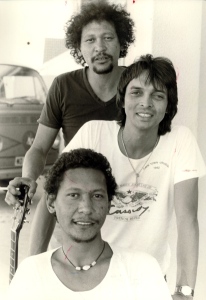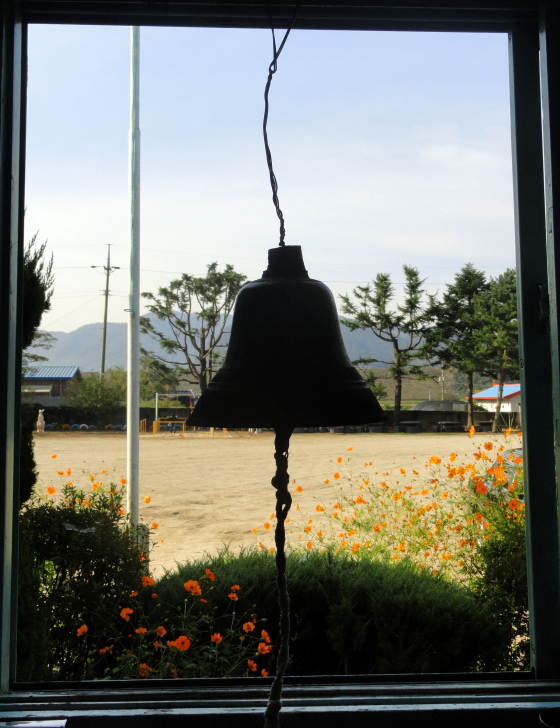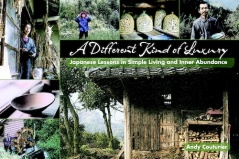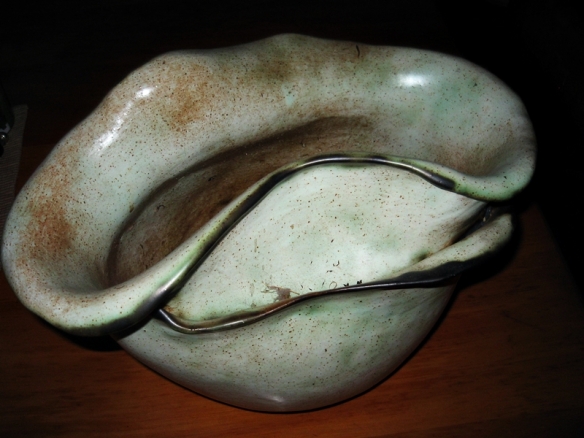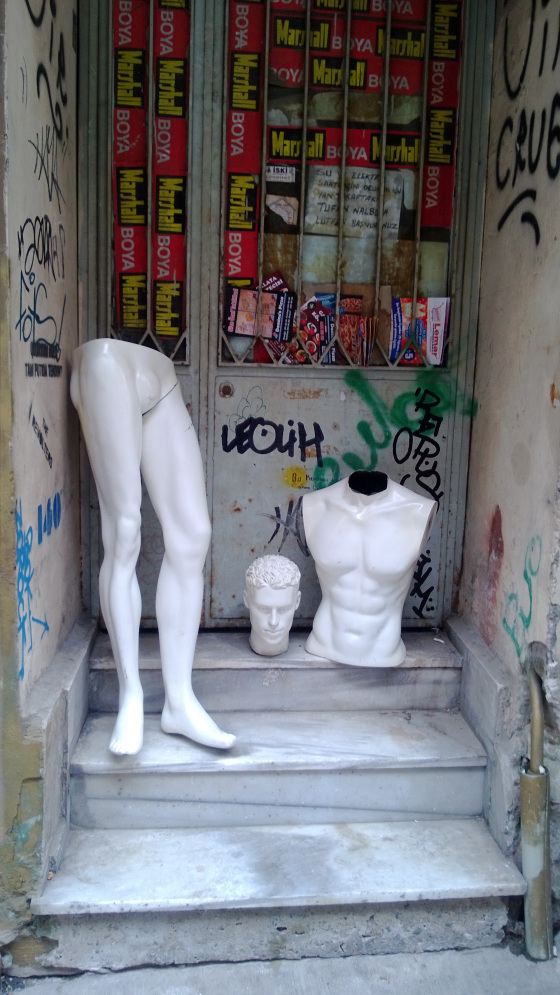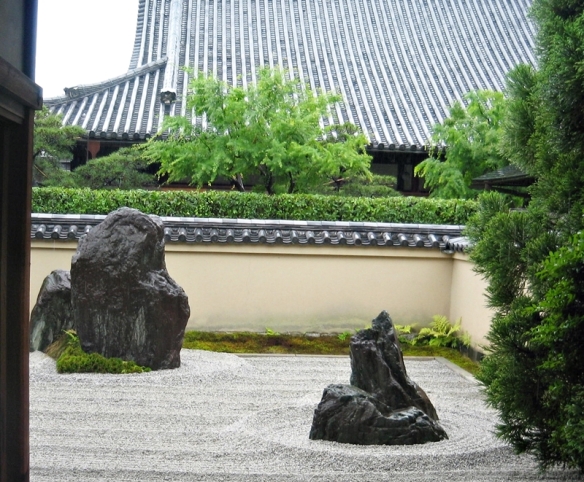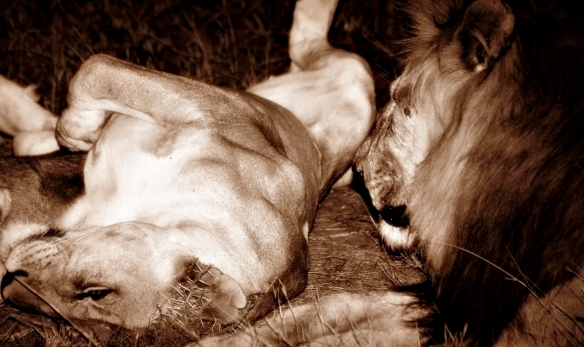The first time I met Steve Fataar I was 16 and he was a legend.
Wearing a long multi-coloured patchwork leather coat and boots, he held my hand for a long time in both of his and looked down at me, saying nothing. That first encounter – which impressed me though few words were spoken – lingered as a lesson in what it meant to have presence. The shimmering star-flooded sky seemed an apt backdrop, that Durban night at the Open Air Theatre as Steve and his band played Jackson Browne’s Everyman building up the mesmerising rolling thunder of drums to the final crescendo. The song’s momentum pulled the crowd into a vortex of sound that kept us all in breathless suspense until we exhaled as one into wild applause.
Today, almost 40 years later, he’s standing at my gate.
‘I don’t breathe too easy anymore,’ he says as he hands me his heavy guitar case so I can carry it inside for him. It has cost him to walk from the car to my gate. He smiles, ‘but hey, I can still sing!’
He’s here in Cape Town for a number of gigs and he’s invited me to sing with him, a song we’d performed often together several decades ago – Dylan’s Mozambique.
In the mid-70’s Steve traveled to Mozambique on a road trip with friends. They slept on beaches, playing their way across the border and through road blocks. On one of their adventures, they came across a fortress-like crenellated building with barred windows. Curious, they looked for a way in – and discovered they were trying to enter a prison. The guards had long since fled, believing Frelimo was on its way, but the two remaining prisoners continued to lock themselves dutifully back in after going out for supplies, taking care of the place, not realising the war was over and they could go home.
In those days Steve wore an iconic bright red poncho and he shows me a recently discovered photo of him wearing it, guitar slung round his back as he’s peering into one of the windows of the jail. Now 50 years later he says, someone remarked the photo would make a great album cover.
‘I like to think,’ says Steve chuckling ‘that somewhere on one those beaches, there was a young Jewish man writing a song about Mozambique the same time we were there.’ (Dylan first released the song on his album Desire in 1976)
We’re sitting in my lounge and as we talk, Steve’s idly pulling a tapestry of tunes out of his favourite battered nylon string acoustic guitar. I’m remembering playing music in Durban decades ago; Rapson Rd, Overport Rd and attending word-of-mouth impromptu concerts in the Valley View house. Those houses are now long gone.
Practice sessions were ramshackle as the commune houses themselves, wreathed in the earth-smoke aroma of cigarettes, marijuana and rooibos tea brewing on the stove. If my memory of those times is a pleasant drifting haze, there were vivid and sharply lit moments too. The astonishing never to-be-repeated guitar riffs, ringing vocal harmonies that hung like bright resonating bells riveted in the air, a staccato muttering drum sequence that kept everything stitched together. It was a kind of loose spaciousness that Steve created which allowed music to move through freely, while at the same time stay held in place by a collective desire to capture it alive.
Memories of Steve’s younger brother Issy surface in the melodies Steve’s threading together. Issy’s sheer wizardry, the way he drew enchanted chords out of his guitar with that wide-eyed smile of surprised delight at his own genius is what we’re both remembering – both missing – right now. Issy and I had done a couple of our own shows too at the time. The longing is ephemeral, hollow as the feeling of empty space, a silence that shouldn’t be there. Issy was just 44 when he died of leukaemia.
‘And Abby?’ I ask ‘what became of Abby Joyce?’ Abby and I had sung a couple of soulful songs together with the band then. I had had a huge crush on the beautiful young Sydenham man with a voice that ripped my heart out every time he sang. In my fantasies, with all the privileged blind arrogance of a white girl, I carelessly shrugged off the hazards of South Africa’s immorality act. This was traumatic territory Steve and his girlfriend Marianne were traversing themselves at the time.
Now Steve tells me Abby had become well known as a performer in Melbourne until he too died in 2008.
Zane Adams? Is he still around? Zane with his soaring vocal showmanship, his sexy-sleek elegant stage strut. Steve goes quiet. I thought you knew. Mark Park, Charl Phyfer, the list goes on of people we once knew. Now gone.
But we’re still here. And it’s time to rehearse.
‘I’m gonna have to learn this song all over again!’ laughs Steve as he searches his guitar, looking for old chords, excavating the tune. He comes upon it suddenly, stumbling on it like an ancient seam of gold, the old familiarity of it gleaming. We fall easily into the harmony, the words coming back to us, returning verse by verse like slightly forgetful migrating birds. We go through it just once, no repeats or bridges.
‘That’s it!’ exclaims Steve. ‘We got it down.’ Really? After going through it once? I’m left unsettled. Too much uncertainty for me.
He hands me his guitar so he can take a call. It feels warm, used, loved. I start playing a few chords, riffs my fingers remember all on their own. I haven’t picked up my guitar in 2 years. Once he’s done with the call, we talk about me doing a song on my own.
‘How about the one you’re playing right now?’ says Steve. ‘It’s beautiful! In fact, I’m gonna ask Errol to play it with you.’
Right then and there he calls Errol Dyers.
‘Hey Errol! You know this song….?’
He holds the phone in front of me. ‘Sing a few bars, Nina…’
I’ve heard of the guitar maestro Errol Dyers of course, but I’ve never met him. I play the opening and sing a verse of Manhattan Transfer’s Scotch & Soda into Steve’s phone.
‘You got that?’ he asks Errol. All I can hear is muffled static in response. ‘Yeah, Errol says he already knows the song … ok great…. We’re gonna do that one too.’ It’s rehearsal Fataar style – riding the wave that’s here now, a singular trust in the inventiveness of the moment.
Now Steve’s playing an eloquent dark chord sequence, elegiac, somehow wrenching. ‘Here’s a song I wrote in 1969. I dunno why I never recorded it. And now I quite like it. All those years I coulda been playing it. It’s called Dove.’
Dawn sees a dove
lift its wings to the sun
While a leaf gently glides
to the ground
Love lifts her head
Smiles a smile and sighs a sigh
While the dew on the grass
goes to sleep
Why do I suddenly want to weep? The way the melody cuts open my chest is like surgery. A clot of emotion that needs release. Steve’s chortling quietly to himself. ‘It’s about an accidental acid trip I went on. I was in California in some house we visited. This woman just popped something in my mouth saying, here, you’ll enjoy this. Turns out it’s Orange Sunshine. Suddenly the world came alive in a whole new way…. But man, after 18 hours you’re kinda longing for it to stop, y’know. Like the stairway to heaven has turned into the road to hell.” Even as he speaks, Steve’s listening to his own playing like there’s a message hidden inside. His head tilted to the side as if maybe listening at just the right angle of obliqueness will give him the answer he’s been waiting for.
It’s a conversation and the part I can’t hear is the part I feel.
A week later I arrive at the Alma Café at the appointed time ready to do a sound check. But the doors are locked and through the windows I see the chairs still piled up on the tables. I briefly wonder if I have the right night. I wonder up and down the road and a while later a young woman arrives, cigarette in hand. She lets me in and I tune my guitar while she energetically sweeps and then washes the floors, cigarette now clamped between her lips as she works. The minutes tick by. My mouth is dry. She’s taking the chairs off the tables. It’s just an hour until show time. I have no idea how this evening is going to work out and no one has arrived. I’m clinging to the idea that at least Errol knows the song I’m about to play with him without a single rehearsal.
It’s only later, when I’m already on stage in front of a full house that I find out the truth. I’m telling the story of how I came to be playing with Errol when we’ve only just met for the first time. I get to the part about Steve asking Errol whether he knows the song after I’d played him the first verse over the phone. And Steve interjects with “Yeah, and then Errol said to me ‘Well I do now!’ ”
Not that I need have worried. Errol played seamlessly, with an attentiveness to the shape of the song that was not so much embellishment as a fresh restructuring, his guitar revealing new arrangements I could never have imagined. Even as he played, I was aware of him listening intently. Not to me, but to the idea of the song. Reinventing what he heard through his guitar.
The least trustworthy part of the whole thing was me. We could have had any number of rehearsals and that would always have remained true. Where Steve and Errol were fluent deep-diving inhabitants of that soul-sea of sound, I would always be one who’d just learned to swim on the surface. In these waters, my classical training kept me afloat, it didn’t teach me how to ride the unpredictability of waves.
That evening, Steve’s friend Dave Barkham had arrived with a painting tucked under his arm. The background is a muted whitewashed wall. In the foreground, a man wearing a red poncho, Gibson slung around his back, is peering into a jail-room window. The words ‘Knocking on Heaven’s door’ in pale blue cursive written alongside. When the time comes to sing Mozambique, it’s this story of a painting of a photograph that stands on stage in silent chorus, the whole room echoing with history. It had been Dave who’d taken the original photograph and he’s gifted Steve with the painting.
From the moment I saw that painting, I wanted it,’ says Steve when the song is done. ‘Thanks so much Dave.‘
‘That’s ok,’ replies Dave from the audience. ‘It’ll just cost you an album.’
The past has a way of claiming its dues from the present. The songs are waiting. The cover is done. And it’s a fitting image: a man with a guitar looking through the bars of a prison window from the outside. Steve was never inside the machine.
Whether or not the album ever becomes reality is immaterial. It’s by living from this place of freedom that Steve Fataar will always be legend.
Steve (Abduragman, Marnie) Fataar, together with his brothers, Ricky and Edries (Brother), was one of the founding members of the band The Flames (aka:The Flame formed in 1963) which became one of South Africa’s most famous bands of the 60’s and early 70’s recording a total of 5 albums and 15 singles.
The Flames were “discovered” by Carl Wilson of The Beach Boys while performing in Blaise, a London club in 1969. One of the first bands to be signed to the Beach Boys’ label, Brother Records, The Flames recorded their first internationally-released album, The Flame, the following year.
The Flames disbanded shortly afterwards with Steve and Edries returning home to Durban, South Africa while Ricky and drummer Blondie Chapman joined the Beach Boys’ touring band. Steve went on to build a music career playing gigs collaboratively with a host of well-known South African musicians around the country. Today at 74, Steve feels deep gratitude for being able to continue doing what he loves best, playing live music with other musicians for audiences who love and appreciate the magic they create together.
Purchase albums here.




